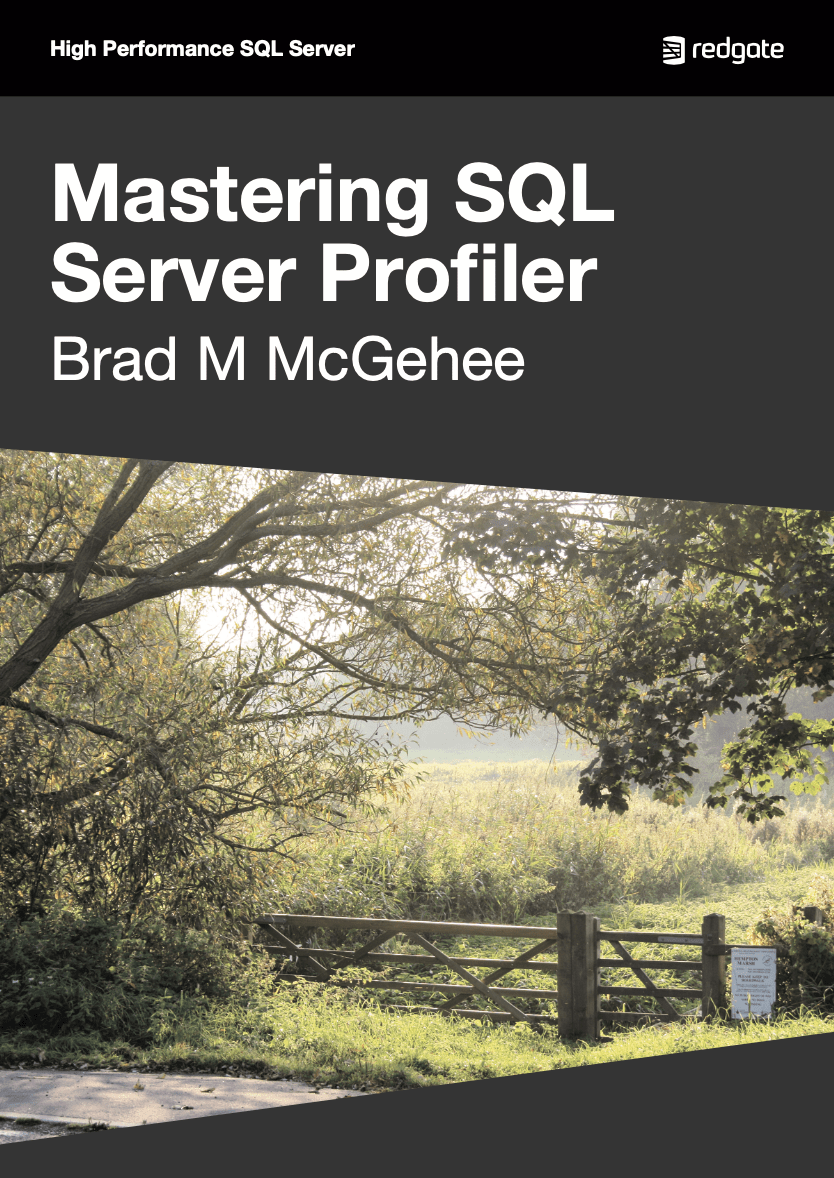 Mastering SQL Server Profiler by Brad McGehee Mastering SQL Server Profiler by Brad McGehee(1st Edition, January 2009) Download eBook (PDF): Free Kindle Edition: Coming Soon " I have been a SQL Server DBA for about 14 years, and I regard Profiler as one of the most useful of SQL Server's "built-in" tools" -- Brad McGehee | |
| View Related Books: | |
| Editorial Review SQL Server Profiler records data about various SQL Server events. This data is stored in a trace file and can be used to troubleshoot a wide range of SQL Server issues, such as poorly-performing queries, locking and blocking, excessive table/index scanning, and a lot more. For such a potentially powerful tool, Profiler is surprisingly underused. This must be due, at least in part, to the fact that it is occasionally a frustrating tool. The user interface is poor, it lacks many important features, it is poorly documented and, unless you have a lot of experience as a DBA, it is often hard to analyze the data you capture. As such, many DBAs tend to ignore it and this is distressing, because Profiler has so much potential to make a DBA's life more productive. This book will make it easier for you to learn how to use Profiler, analyze the data it provides, and to take full advantage of its potential for troubleshooting SQL Server problems. About the Author Brad is an Industry speaker, writer, and consultant on Microsoft SQL Server, specializing in SQL Server performance tuning, clustering, and high availability. He is the founder of www.SQL-Server-Performance.Com, and oversaw its growth to 350,000 visits each month. He is now Director of DBA Education at Red Gate Software. Brad is a frequent speaker at SQL PASS, SQL Connections, SQL Server user groups, and other industry seminars, and he is the author or co-author of more than 12 technical books and over 100 published articles. He spends what time he has left with his family in Hawaii. He is a Microsoft SQL Server MVP, MCSE+I, MCSD, MCT. | |
Book Details Paperback: 300 pages |
SQL Server Execution Plans
Every day, out in the SQL Server forums, the same questions come up again and again: why is this query running slow? Why isn't my index getting used? In order to arrive at the answer you have to ask the same return question in each case: have you looked at the execution plan? Grant Fritchey provides the only dedicated and detailed book on this essential topic.
2013-03-15
50,924 reads





